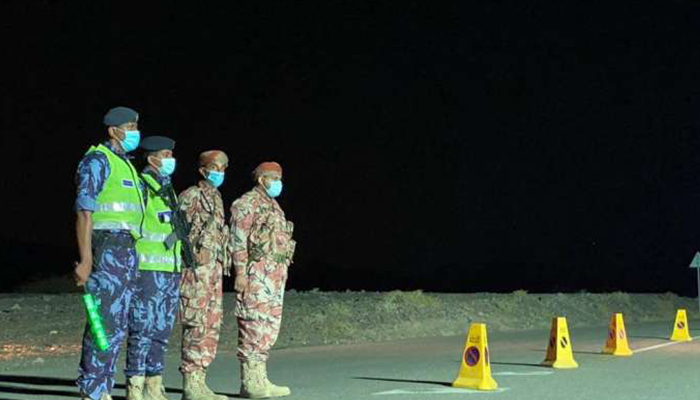
Muscat: As Oman gears up for this year’s Ramadan, locals and expats need to follow the precautions in place to stop the spread of COVID-19 in the country.
Ramadan begins today, and the extent of the measures this year are a bit different as compared to those deployed in 2020.
Although there is a night lockdown in effect between 9pm and 4am, free movement is still permitted across the country outside these times, while last year, travel between many governorates was halted.
Similarly, despite being required to close early, all businesses in the country are now open, while many needed to temporarily cease operations during the previous Ramadan.
Mosques are also open to the public during this Holy Month, although traditional Tarawih prayers still cannot be conducted within. People will need to perform Tarawih prayers at home this year.
Those observing the fast have been asked to not misuse the regulations, and follow COVID protocols.
Dr Ahmed Al Hooti, the head of economic research at the Oman Chamber of Commerce and Industry, advised people to stop the last minute shopping, as that could lead to overcrowding and result in a potential spread of the disease.
“The hours for commercial closure are a little more relaxed compared to what they were before Ramadan began, but people must not take undue advantage of this by going to the shops just before they close,” he said.
“Many shops are only operating at 50 percent customer capacity, and if everyone goes at the same time, then there will be a rush, which is what we need to avoid.”
Once the sun sets and prayers have been said, the fast is broken during the iftar, an evening meal traditionally eaten together by large numbers of friends, family, and close relatives.
This year, however, with Ramadan taking place during the coronavirus pandemic, large iftar gatherings at homes, mosques and tents are prohibited by the Supreme Committee to deal with COVID-19. Sports and cultural activities are also suspended.
“Because last year’s Ramadan also took place during the pandemic, we are now used to organising iftar among just ourselves,” said Dr Syed Mujahid Hussain, the head of the Department of Economics and Finance at the College of Economics and Political Science at Sultan Qaboos University.
“I know it might be difficult for many, because Ramadan is traditionally a time for us to spend together in large groups, and the spirit of community is particularly strong, but refraining from gathering is a sacrifice we all have to make,” added Mujahid, a Finnish national.
During this time, eating and drinking in public places is prohibited for all. Being a month of prayer and reflection, people are required to dress modestly at all times. It is important to also respect the sensitivities of those who observe the daytime fast during this month.
The word ‘Ramadan’ comes from the root word ‘Ramdh’, which in Arabic means ‘burning’: Ramadan is therefore a month when all of the impurities of a person are burned away. It is also a time of isolation from worldly wants, and for reflection, all of which are intended to make them a better human being.
“Ramadan is a time for everyone in our family to come together and observe the spirit of the month,” added Nasreen Khalid, a British national working in the country’s oil and gas sector. “I understand the feeling of community is very strong during this time of the year, particularly in a country like Oman, but let us remember what Ramadan is really all about.
“It is about being strong and abstaining from temptation, and I think the measures we are required to follow this year will make us all the more resilient and make us grateful for the things we have, particularly once the pandemic ends,” she said.